Fall 2022 Lecture Archive
* There will not be live-stream broadcast for this lecture, and it will not be recorded.
‡ There will be live-stream broadcast for this lecture, but it will not be recorded.
# This speaker will join remotely
^ Tentative in-person speaker
Fall 2022 Hoch Cunningham Environmental Lecture Schedule
-
Sep. 8, 2022:
Boston as a Green New Deal City (Rev. Mariama White-Hammond) -
Sep. 15, 2022:
Young Climate Activists and the Culture of Cultivated Optimism (Ann Ward) -
Sep. 22, 2022:
Climate Change, Health Equity, and Organizing for Change (Gaurab Basu) -
Sep. 29, 2022:
Delicious Rot: How Humans Shape the Diversity of Fermented Food Microbiomes (Benjamin Wolfe) -
Oct. 6, 2022:
Propagating Silence: Listening for Botanical Musicality (Cana McGhee) -
Oct. 13, 2022:
The White House Conference on Hunger, Nutrition, and Health: Translating Evidence into Action (Dariush Mozaffarian) -
Oct. 20, 2022:
Achieve a Just Energy Transition: Creating Jobs, Building Wealth, and Reducing Energy Burden (Kerry Bowie) -
Oct. 27, 2022:
Environmental Justice in an Age of Upheaval (David Bond) -
Nov. 3, 2022:
“There’s a Raccoon in my Chimney!” … and Other Unexpected Wildlife Problems (Laura Simon) -
Nov. 10, 2022:
Meat From Cells, Not Animals (Natalie Rubio) -
Nov. 17, 2022:
The Probiotic Turn and the Green Rebranding of Cattle in the Anthropocene (Jamie Lorimer) -
Dec. 1, 2022:
Becoming Ecological Archaeologists (Craig Cipolla) -
Dec. 8, 2022:
Hubert Goodale’s Feminized Cockerels: Industrial Chicken Breeding, Sex Control, and the Queer Ecology of Endocrinology (Gabriel Rosenberg)
Fall 2022 Hoch Cunningham Environmental Lecture Information
Boston as a Green New Deal City
Speaker: Reverend Mariama White-Hammond, Chief of Environment, Energy, and Open Space for the City of Boston
Thursday, September 8, 2022 | 12-1pm EST
Location: Breed Memorial Hall
View Lecture Recording – Sep. 8
Chief White-Hammond will discuss the important steps Boston has taken in the past year to demonstrate its leadership in being a Green New Deal city. Topics covered will include the groundbreaking ordinance around building emissions standards, the launch of a green jobs program for environmental justice communities, and the work currently being done around urban tree canopy and school bus electrification.
This event is co-sponsored by the Jonathan M. Tisch College of Civic Life and Government and Community Relations.
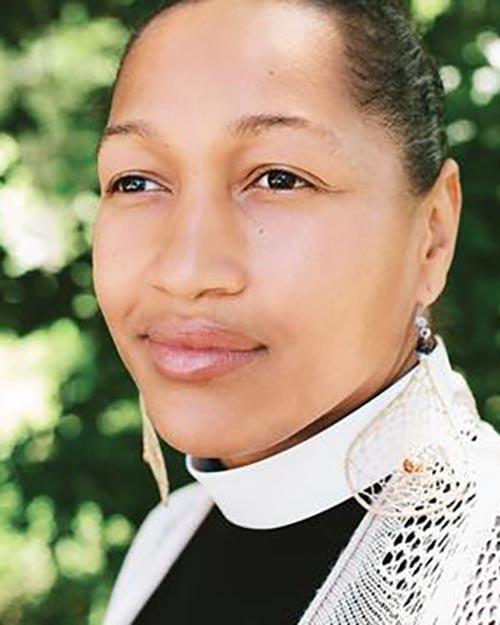
Reverend Mariama White-Hammond serves as the Chief of the Environment, Energy, and Open Space Cabinet. In this role, Rev. White-Hammond is responsible for leading the Cabinet in achieving its mission of enhancing environmental justice and quality of life in Boston by protecting air, water, climate, and land resources, as well as preserving and improving the integrity of Boston's architectural and historic resources.
The Cabinet includes the Environment Department and the Parks and Recreation Department. As Chief, Rev. White-Hammond oversees policy and programs, including Climate Ready Boston, the building energy reporting and disclosure ordinance, rental registry, and Greenovate Boston, the City's community outreach initiative on sustainability. She continues to move the City towards its goal of being carbon neutral by 2050, as part of Carbon Free Boston.
Rev. Mariama White-Hammond has an extensive background in embedding equity and environmental justice into Boston’s communities. She is the founding pastor of New Roots AME Church in Dorchester, a multi-racial, multi-class community. In this work, Rev. White-Hammond utilizes an intersectional lens to connect ecology, immigration, climate change, energy policy and economic justice. She has received numerous awards, including the Barr Fellowship, the Celtics Heroes Among Us, The Roxbury Founders Day Award and the Boston NAACP Image award. She was selected as one of the Grist 50 Fixers for 2019 and Sojourners 11 Women Shaping the Church. White-Hammond was born and raised in Boston and began her community engagement in high school when she worked as a Peer Health Educator.
Young Climate Activists and the Culture of Cultivated Optimism
Speaker: Ann Ward, Department of Sociology at Brandeis University
Thursday, September 15, 2022 | 12-1pm EST
Location: Curtis Hall Multipurpose Room
View Lecture Recording – Sep. 15
Young climate activists have brought new energy to the climate movement. These activists must find ways to manage the complex array of emotions that arise from the climate crisis and their activism. Using the concept of emotional culture, this lecture will unpack how these activists collectively process their emotions related to climate change. The lecture will also consider how emotional culture impacts the very possibilities of emotional expression in these movement spaces. For young climate activists who may be in school during this lecture, this talk will be recorded and published on our YouTube channel shortly after the lecture.
This event is co-sponsored by the Tufts Office of Sustainability and the Jonathan M. Tisch College of Civic Life.
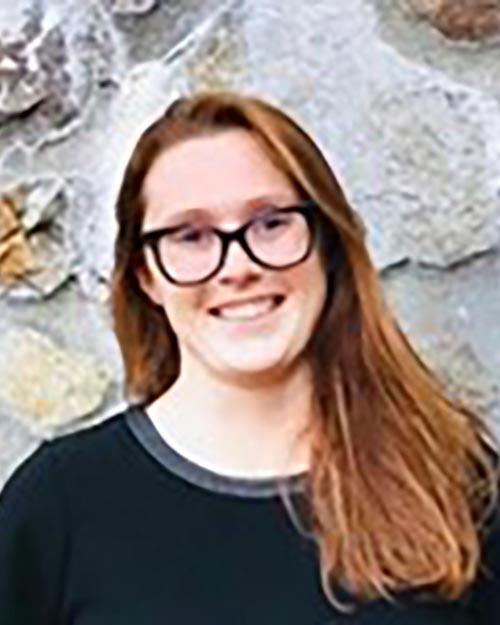
Ann Ward is a PhD candidate in Sociology at Brandeis University. Ann's interests include environmental sociology, social movements, youth studies, and qualitative methods. Her dissertation is an ethnographic study of young climate activists with a particular focus on the relationships between collective action, narrative, emotion, and climate change. Ann is also the Education and Outreach Program Administrator for Tufts Office of Sustainability.
Climate Change, Health Equity, and Organizing for Change
Speaker: Gaurab Basu, Center for Health Equity Education & Advocacy at the Cambridge Health Alliance
Thursday, September 22, 2022 | 12:00-1:00pm EST
Location: Curtis Hall Multipurpose Room
View Lecture Recording – Sept. 22
Climate change is fundamentally an issue of public health and health equity. This lecture will explore the ways in which climate change and the burning of fossil fuels impact health through 9 major mechanisms: infectious diseases, extreme weather/natural disasters, food insecurity, water scarcity, heat, air pollution, mental health, forced migration and political conflict. We will further discuss ways in which community organizing can offer climate solutions through collective action.
This event is co-sponsored by Jonathan M. Tisch College of Civic Life and Tufts School of Medicine Public Health & Professional Degree Programs.
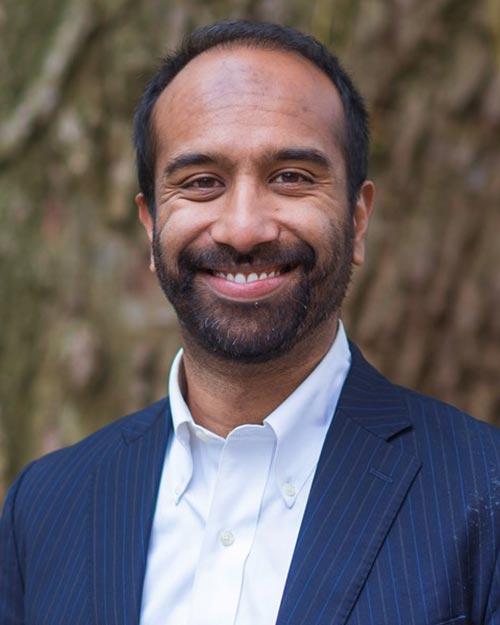
Gaurab Basu is a physician and founding co-director of the CHA Center for Health Equity Education and Advocacy (CHEEA). He is an Instructor at Harvard Medical School and Faculty Affiliate in the Department of Global Health and Social Medicine. He is a Health Equity Fellow at the Center for Climate, Health, and the Global Environment and Faculty Affiliate at the FXB Center for Health and Human Rights at the Harvard T.H. Chan School of Public Health.
Gaurab Basu has received numerous awards in medical education, including the inaugural Equity, Social Justice and Advocacy Faculty Award and the Charles McCabe Faculty Prize in Excellence at Harvard Medical School. At Harvard Medical School, he is lead faculty of climate curriculum, has been co-director of the social medicine course and has served on the Task Force to Address Racism.
He has been recognized nationally for his work in climate change and health equity. He was named to the 2021 Grist 50 list of climate leaders. Gaurab Basu also received the Union of Concerned Scientists’ 2020 Science Defender Award. He has served on the Implementation Advisory Committee in the Massachusetts Governor’s Executive Office Of Energy and Environmental Affairs. He was a part of the city of Cambridge Mayor’s Climate Crisis Working Group and its Net-Zero Climate Task Force. His perspective pieces have appeared in the Boston Globe, Scientific American, the BMJ, Grist, NPR/WBUR, and the Philadelphia Inquirer, among others. His work has been featured by NPR's All Things Considered.
Delicious Rot: How Humans Shape the Diversity of Fermented Food Microbiomes
Speaker: Benjamin Wolfe, Department of Biology at Tufts University
Thursday, September 29, 2022 | 12:00-1:00pm EST
Location: Curtis Hall Multipurpose Room
View Lecture Recording – Sept. 29
Advances in DNA sequencing technologies have transformed our understanding of microbial diversity across our food systems. But the processes that shape the ecology of most food microbes are largely unknown. The lecture will discuss how the Wolfe lab uses the microbial communities of fermented foods to identify ecological design principles for food microbiomes. From crocks of sauerkraut, jars of fermented tea, and wheels of cheese, we are learning the ways that microbes disperse, interact, and evolve to form our favorite fermentations. We are also using these edible ecosystems as tools for improving microbial literacy in the classroom and in our communities.
This event is co-sponsored by Tufts Biology Department.
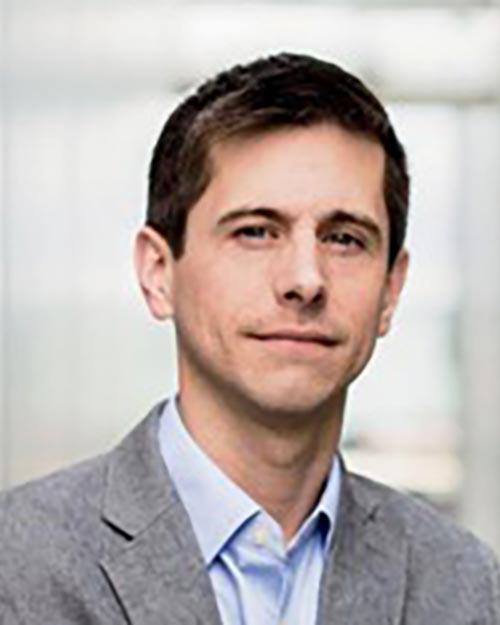
Benjamin Wolfe is an associate professor of microbiology in the Department of Biology at Tufts University. He received a B.Sc. in 2003 from Cornell University, a Ph.D. in from Harvard University in 2011. Benjamin's lab at Tufts uses fermented foods as model systems to identify the processes that shape the diversity of microbiomes. In addition to research focused on the basic biology of microbes, the Wolfe lab has worked with chefs and food producers, including David Chang's Momofuku Culinary Lab, Jasper Hill Farms, and Blue Hill at Stone Barns, to understand the roles of microbes in creating the diversity of flavors in fermented foods. Benjamin has also written about food and microbes for various publications, including Lucky Peach magazine, Boston magazine, The Conversation, and World of Fine Wine.
Propagating Silence: Listening for Botanical Musicality
Speaker: Cana McGhee, Department of Music at Harvard University
Thursday, October 6, 2022 | 12:00-1:00pm EST
Location: Curtis Hall Multipurpose Room
View Lecture Recording – Oct. 6
How do we listen during a time of climate crisis? What lifeforms already in our midst might aid in our future engagements with silent soundings? In this talk, Cana McGhee will respond to these questions by elucidating several plant musicalities that enact interspecies relationships beyond animal-human assemblages. The lecture will primarily focus on domestic(ated) settings wherein plant lives are nudged into spectrums of audibility and will explore the question of electromagnetic amplification through analyses of experimental art music performances with plants and handheld devices that transform plants into musical instruments. The discussion will then highlight Black and queer plant parents blurring the boundaries of plantness and humanness through digital musico-sonic play. By resisting the landscape-style listening strategies favored in sound studies and acoustic ecology, it is shown that the development of modes of listening that embrace seemingly silent lives whose sonic imprints linger with their material and biological traces on environments and ecosystems.
This event is co-sponsored by the Digital Design Studio at Tisch Library.
Follow-up Workshop
Thursday, October 6, 2022 | 2:00-3:30pm EST
Location: Tisch Library, Room 303 (Digital Design Studio)
Today's lecture will be followed by an optional workshop led by Cana titled Soundscapes of the Small, from 2-3:30pm in the Digital Design Studio (Room 303) of Tisch Library. In this workshop, we will experiment with close listening techniques that amplify the soundscapes (both heard and unheard) in our midst. Whereas the notion of soundscapes is typically applied to the context of large swaths of landscape terrain, we will use this workshop to explore the potential of this practice to be applied to smaller-scale settings in our everyday lives. We will also try to use our ears to interrogate the ethics behind sonic categories like noise, silence, and musicality. The first half of the workshop will be spent listening to our immediate surroundings and then we will debrief as a group. Registration is required.
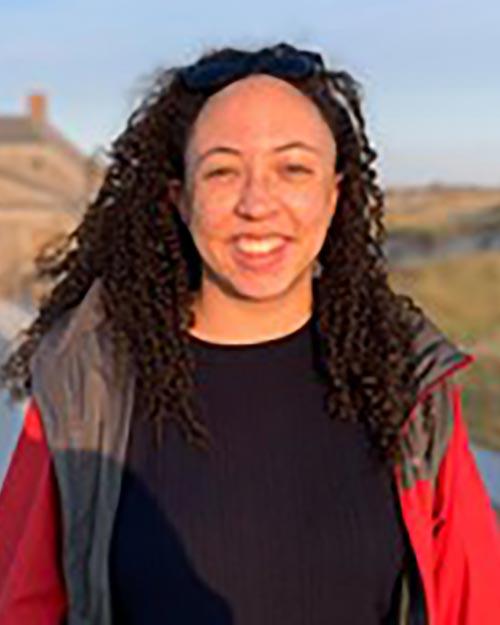
Cana (KAY-nuh) McGhee is a 4th-year PhD candidate in Historical Musicology at Harvard University. An Atlanta native, she earned her BA in Music and French from Emory University in 2019. There, she completed her thesis work about the song cycles of composer Gabriel Fauré (1845-1924) in the context of linguistic nationalist movements and avant-garde art festivals in fin-de-siècle France and Belgium. Currently her work revolves around musical engagements with natural science, climate change, and environmentalism in a variety of repertoires. Her dissertation focuses on spectrums of silence and the identities rendered audible across a range of domestic plant care practices, including glass specimen-making, greenhouse and garden concerts, and online plant mom culture. Apart from her academic life, Cana also enjoys choral singing, running, and writing short stories.
The White House Conference on Hunger, Nutrition, and Health: Translating Evidence into Action
Speaker: Dariush Mozaffarian, Friedman School of Nutrition Science and Policy at Tufts University
Thursday, October 13, 2022 | 12:00-1:00pm EST
Location: Curtis Hall Multipurpose Room
View Lecture Recording – Oct. 13
The White House Conference on Hunger, Nutrition, and Health will be convened in September 2022, with the ambitious goal of developing a roadmap of actions to improve nutrition, end hunger, and reduce diet-related chronic diseases in the United States by 2030. This talk will focus on (1) the efforts undertaken by our independent coalition to support and inform the Conference, convening voices from across the nation and from multiple sectors to discuss policy actions to achieve the Conference goals; (2) the national recommendations and roadmap presented at the White House Conference; and (3) planned critical post-Conference work to continue to translate and disseminate of scientific evidence into public awareness, policy, and innovation.
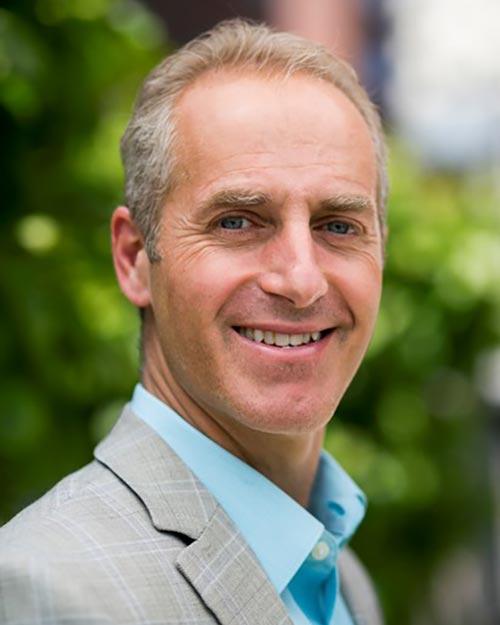
Dariush Mozaffarian is a cardiologist, Special Advisor to the Provost, Dean for Policy, and Jean Mayer Professor at the Tufts Friedman School of Nutrition Science and Policy. He is also Professor of Medicine at Tufts School of Medicine. He has stepped away from his role as Dean of the Friedman School for the 2022-23 academic year, returning on July 1, 2023, to focus on the translation and dissemination of scientific evidence into public awareness, policy, and innovation, including work to help inform the White House Conference on Hunger, Nutrition, and Health. His work aims to create a food system that is nutritious, equitable, and sustainable. He has authored more than 450 scientific publications on dietary priorities for obesity, diabetes, and cardiovascular diseases, and on evidence-based policy approaches and innovations to reduce these burdens in the US and globally. He has served in numerous advisory roles, and his work has been featured in a wide array of media outlets. Thomson Reuters has named him as one of the World's Most Influential Scientific Minds.
Achieve a Just Energy Transition: Creating Jobs, Building Wealth, and Reducing Energy Burden
Speaker: Kerry Bowie, Browning the Green Space
Thursday, October 20, 2022 | 12:00-1:00pm EST
Location: Curtis Hall Multipurpose Room
View Lecture Recording – Oct. 20
Communities of color receive more than their fair share of “environmental bads” like brownfields, pollution, and asthma and less than their fair share of “environmental goods” like clean tech jobs, energy efficiency, and renewable energy. Browning the Green Space (BGS) is a nonprofit coalition of leaders committed to advancing Diversity, Equity, and Inclusion in clean energy. In this lecture by their co-founder, learn about how BGS is powering a just energy transition by creating jobs, building wealth, and reducing the energy burden in Black and Brown communities. By removing barriers and expanding access, BGS seeks to close the racial wealth gap while combating climate change.
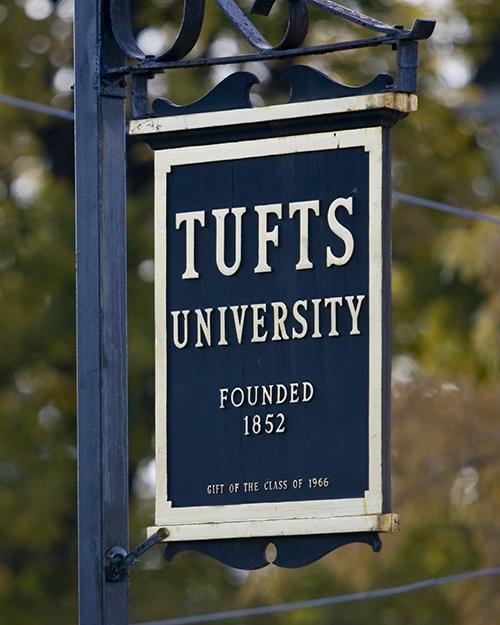
Browning the Green Space Co-Founder, President, and Executive Director Kerry Bowie has 25 years of experience in private, public, and nonprofit management. Mr. Bowie previously served as Director of Environmental Justice at the Massachusetts Department of Environmental Protection (MassDEP) in both the Patrick and Baker Administrations; worked as a manager in Facilities Environmental, Safety, and Health at Texas Instruments’ Research & Development Fab in Texas (Dallas); and grew up in a fenceline community in Alabama (Anniston). In addition to leading BGS, Kerry serves as Managing Partner at Msaada Partners, a Boston-based consultancy providing technical assistance to promote entrepreneurship in communities of color. Kerry also co-founded the Majira Project to address the lack of diversity in the traditional entrepreneurial ecosystem and the disparity in resources available that Kerry observed while working in various entrepreneurship programs across Boston. Kerry holds an MBA from the MIT Sloan School of Management as well as an MS in environmental engineering from University of Michigan and a BS in environmental engineering from MIT.
Environmental Justice in an Age of Upheaval
Speaker: David Bond, Center for the Advancement of Public Action at Bennington College
Thursday, October 27, 2022 | 12:00-1:00pm EST
Location: Curtis Hall Multipurpose Room
COVID-19 withdrew government oversight of many dirty industries. Some industries found this an opportune moment to dump pollution into nearby communities with brazen disregard for environmental law and public health. The talk describes how engaged social research helped shine an unflattering light on the pandemic negligence of a hazardous waste incinerator in upstate NY and a mammoth refinery in the Caribbean. Anthropology – as a method of inquiry and as a matter of emphasis – came to play an instrumental role in broadcasting both sites into national news and federal deliberation, and effectively demanding change. This talk also reflects on: 1) the pursuit of justice within a complicit system; 2) the ability of anthropology to build common ground in an age of upheaval; and 3) following the example of frontline residents, insists on revolutionary hope in dark times. This lecture was not recorded.
This event is co-sponsored by the Department of Anthropology.
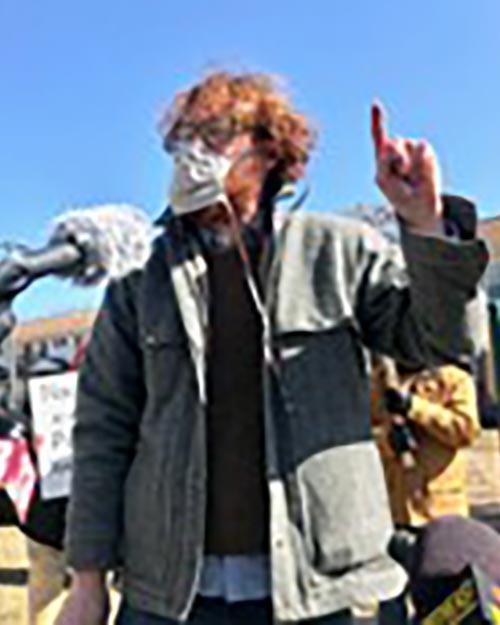
David Bond is a cultural anthropologist whose research focuses on the scientific measurement and political management of the disastrous qualities of crude oil. He has conducted ethnographic research on leaky refineries in the Caribbean, on the figure of the Keystone XL Pipeline, corporate social responsibility in the tar sands of Alberta, and the scientific and political response to the BP Oil Spill. Bond is currently working on three projects: a critical history of the category of the environment; a collaborative ethnography on the ends of oil in northern Alaska; and a community-engaged response to the discovery of the chemical PFOA in Bennington, VT and Hoosick Falls, NY. His research has been supported by Wenner Gren, the American Council of Learned Societies (ACLS), and the National Science Foundation; his publications have appeared in Anthropology Now, Cultural Anthropology, and American Ethnologist. Bond holds a PhD in Anthropology from the New School for Social Research. He has taught on the environment and public action at Bennington College since 2013 and is the associate director of the Elizabeth Coleman Center for the Advancement of Public Action (CAPA). He is also co-founder of the Bennington College Prison Education Initiative.
“There’s a Raccoon in my Chimney!” … and Other Unexpected Wildlife Problems
Speaker: Laura Simon, President of Connecticut Wildlife Rehabilitators Association
Thursday, November 3, 2022 | 12:00-1:00pm EST
Location: Curtis Hall Multipurpose Room
View Lecture Recording – Nov. 3
People may be surprised (and alarmed!) to find a bear on the back deck, a woodchuck gobbling up vegetables, a beaver flooding out the backyard, or a woodpecker drilling large holes in the house. The solution to these problems can be quite simple, often requiring nothing more than a basic understanding of the animal's behavior and motivation, a few common household items, and more importantly, a change in human behavior. Yet all too often people resort to traps or other shortsighted “solutions” which exacerbate the problem. This presentation will teach participants not just how to resolve “nuisance” wildlife problems but give deeper insight into the wildlife who frequent our backyards and neighborhoods.
This event is co-sponsored by the Center for Animals and Public Policy at the Cummings School of Veterinary Medicine.
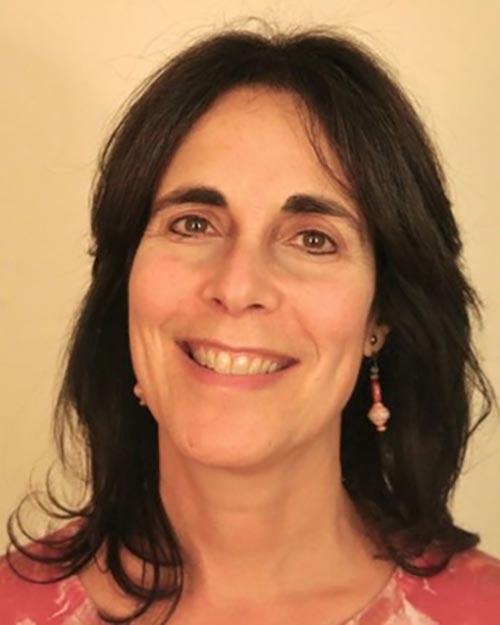
Laura Simon is a Wildlife Ecologist who specializes in helping communities resolve problems with wildlife. She is also the president of the Connecticut Wildlife Rehabilitators Association and previously, the wildlife ecologist for the Humane Society of the United States (HSUS). She has lectured all over the country on various urban wildlife topics, ranging from how to stop beaver-caused flooding to how to prevent garden damage caused by deer and woodchucks.
Laura’s work with wildlife has been featured on the Ellen DeGeneres show, the New York Times, NPR and other national media. She has served on several deer task forces and provided urban wildlife consulting services and training programs for municipalities, land trusts, animal control facilities, garden clubs, state agencies, animal shelters, and various nonprofit organizations. Laura graduated from the Yale School of Forestry and Environmental Studies with a Master’s Degree in Environmental Management.
Meat From Cells, Not Animals
Speaker: Natalie Rubio, Cellular Agriculture Scientist at Ark Biotech
Thursday, November 10, 2022 | 12:00-1:00pm EST
Location: Curtis Hall Multipurpose Room
Cellular agriculture is the production of commodities (e.g., meat, dairy) from cell cultures rather than whole organisms. For example, meat can be grown by culturing muscle cells and fat cells from livestock species in bioreactors - instead of breeding, raising and slaughtering animals. Cultured meat technology is similar to the technology used today for synthetic biology, recombinant protein production and cell therapies. Any animal product (e.g., eggs, collagen) can theoretically be made from cellular agriculture. Developing and scaling such innovations could alleviate many of the negative externalities associated with traditional food production systems such as public health epidemics, environmental degradation, and animal welfare concerns.
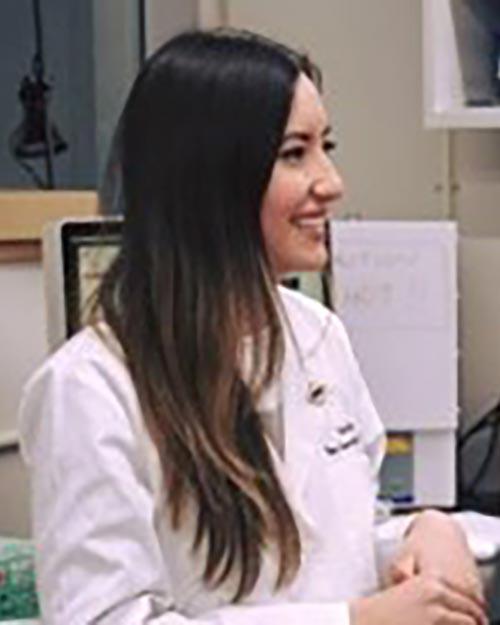
Natalie Rubio is a Cellular Agriculture Scientist & New Harvest Research Fellow, having recently graduated from Tufts University with a Ph.D. Cellular Agriculture/Biomedical Engineering. Her graduate research focused on engineering and characterizing cultured meat from unconventional cell types as well as serum-free media development, scaffold fabrication and organoleptic analysis. She has broad and extensive experience in cellular agriculture and cultured meat throughout the non-profit (New Harvest), academic (Tufts University, University of Colorado, Boulder) and start-up (Perfect Day Foods, Bond Pet Foods, Matrix Meats) sectors. She currently works at Ark Biotech, a Boston-based start-up designing bioreactors and operating systems for cultured meat.
The Probiotic Turn and the Green Rebranding of Cattle in the Anthropocene
Speaker: Jamie Lorimer, School of Geography and Environment at University of Oxford
Thursday, November 17, 2022 | 12:00-1:00pm EST
Location: Curtis Hall Multipurpose Room
View Lecture Recording – Nov. 17
A probiotic turn is underway in parts of the WEIRD world. Probiotic approaches use life to manage life, deploying ‘keystone species’ to modify ecological systems on scales linking the microbial with the planetary. The character, promise, and pitfalls of this probiotic approach will be illustrated through the example of cattle. Cattle have been heavily implicated in global heating and the biodiversity crisis due to their high emissions profile and ecological hoofprint. Amidst calls for a dramatic reduction in the global herd, the livestock industry is rebranding cattle as tools for geoengineering capable of reducing methane, sequestering carbon in the soil, and rewilding ecologies.
This lecture is co-sponsored by the Environmental Studies Program, Department of Anthropology, Department of Biology, and the Science, Technology, and Society Program.
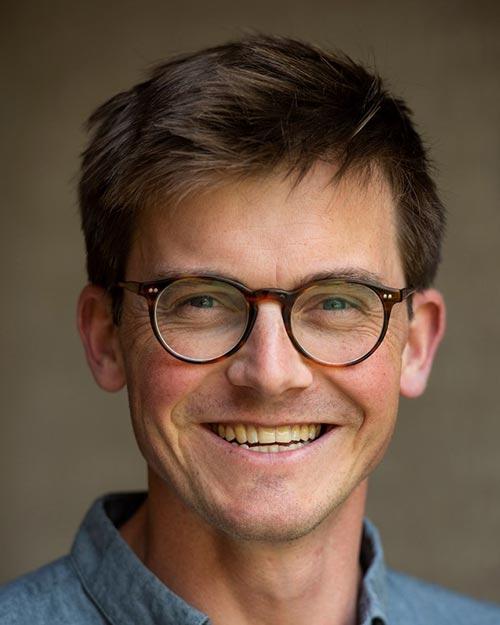
Jamie Lorimer is a Professor of Environmental Geography at the University of Oxford. His research explores the histories, politics, and cultures of wildlife conservation. Projects have ranged across scales and organisms – from elephants to hookworms. He is the author of Wildlife in the Anthropocene: Conservation after Nature (Minnesota, 2015) and The Probiotic Planet: Using Life to Manage Life (Minnesota, 2020). Probiotic Planet argues that a shift is underway in important parts of the Western world in which citizens and scientists are using life to manage life: reintroducing species and managing ecologies to deliver desired functions and services. This probiotic turn is a response to the blowback caused by the excessive application of antibiotic modes of managing life in the Anthropocene. Jamie has explored this shift in past work on rewilding, looking at the introduction of keystone species like beavers and the use of therapeutic microbes. His current research explores the social and environmental dimensions of livestock farming in the context of the concerns about the relationships between agriculture and global heating. This work critically interrogates the rise of regenerative agriculture as a ‘nature-based solution’ to the environmental harms of modern agriculture.
Becoming Ecological Archaeologists
Speaker: Craig Cipolla, Department of Anthropology at Tufts University
Thursday, December 1, 2022 | 12-1pm EST
Location: Breed Memorial Hall
View Lecture Recording – Dec. 1
This talk considers the status of environments, ecology, and nature in North American historical archaeology (the archaeological study of the last 500 years of colonialism, capitalism, globalization, etc.). I draw upon examples from my work on Indigenous reservations in New England and on fur trade history in the Great Lakes, arguing that archaeology is becoming increasingly “ecological.” This entails becoming less anthropocentric in our interpretations of human-environmental interactions, becoming more attuned to the environmental impacts of historical processes, like capitalism, that continue to shape our world, and building new relationships with descendant communities.
This event is co-sponsored by the Department of Anthropology.
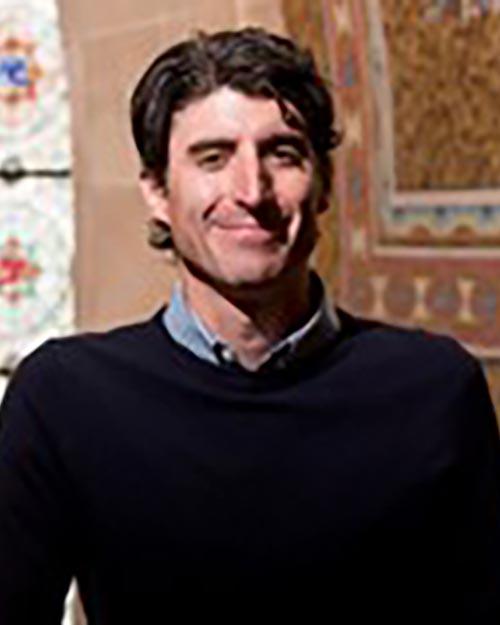
Craig Cipolla (Assistant Professor) is an archaeologist from New England, and a new member of the Tufts Anthropology Department. Before joining Tufts, he was Curator and Vettoretto Chair of North American Archaeology at the Royal Ontario Museum and Associate Professor of Anthropology at the University of Toronto. He work focuses on historical archaeology in New England and the Great Lakes, collaborative Indigenous archaeology, and archaeological theory. He is the director of the Mohegan Archaeological Field School, a collaborative field school designed and run in partnership with the Mohegan Tribe of Connecticut. His has published widely in North American archaeology, including over 40 publications in journals such as American Antiquity and American Anthropologist. His books include Becoming Brothertown (2013, University of Arizona) and Archaeological Theory in the New Millennium (with Oliver Harris, 2017, Routledge).
Hubert Goodale’s Feminized Cockerels: Industrial Chicken Breeding, Sex Control, and the Queer Ecology of Endocrinology
Speaker: Gabriel N. Rosenberg, Gender, Sexuality, and Feminist Studies at Duke University
Thursday, December 8, 2022 | 12-1pm EST
Location: Breed Memorial Hall
View Lecture Recording – Dec. 8
Early endocrinology engaged animal bodies as important sites to study sexual development and “plasticity.” This lecture explores the role of livestock animals in early endocrinology, in particular, by focusing on the experiments of the early twentieth century poultry geneticist, Dr. Hubert Goodale. It foregrounds the political economic and ecological context of industrial chicken farming that mobilized his work. More broadly, the lecture shows the importance of a multispecies and ecological approach to histories of human gender and sexuality, and it discloses the animating and pervasive powers of affect, fantasy, and desire within the applied life sciences and the broader food system.
This event is co-sponsored by the Department of Anthropology.
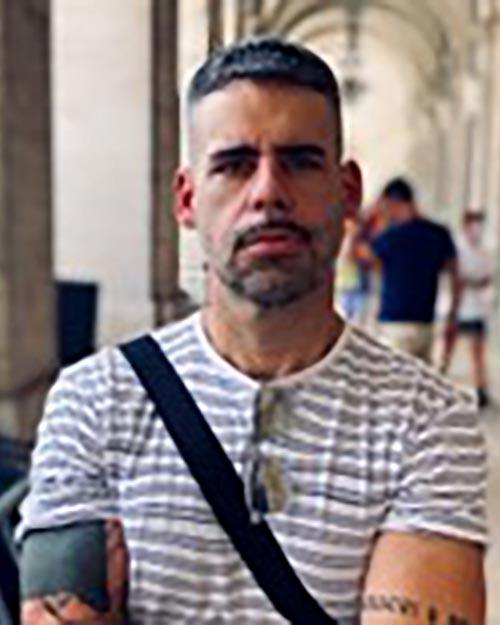
Gabriel N. Rosenberg is an Associate Professor of Gender, Sexuality, and Feminist Studies and History at Duke University. His research investigates the historical and contemporary linkages among gender, sexuality, race, and the global food system. He earned his Ph.D. from Brown University in History. He has been the recipient of the Gilbert C. Fite Award and the Wayne D. Rasmussen Award from the Agricultural History Society, the K. Austin Kerr Prize from the Business History Conference, and a François André Michaux Fund Fellowship from the American Philosophical Society. He was the Duke Endowment Fellow of the National Humanities Center, a Postdoctoral Fellow at Yale University's Program in Agrarian Studies, an Early Career Fellow at the University of Pittsburgh's Humanities Center, and a Visiting Scholar at the Max Planck Institute for the History of Science in Berlin. His scholarly writing has appeared in journals such as the Journal of American History, American Quarterly, GLQ: A Journal of Gay and Lesbian Studies, TSQ: Transgender Studies Quarterly, Agricultural History, and Diplomatic History. His public scholarship has been published in The New Republic, The Washington Post, The Guardian, and many other publications. He is currently at work on a book-length history of the relationship between livestock breeding and human race science, Purebred: Making Meat and Eugenics in Modern America, and, with Jan Dutkiewicz, a popular book on food politics, Feed the People!, that will be published by Basic Books in 2024.